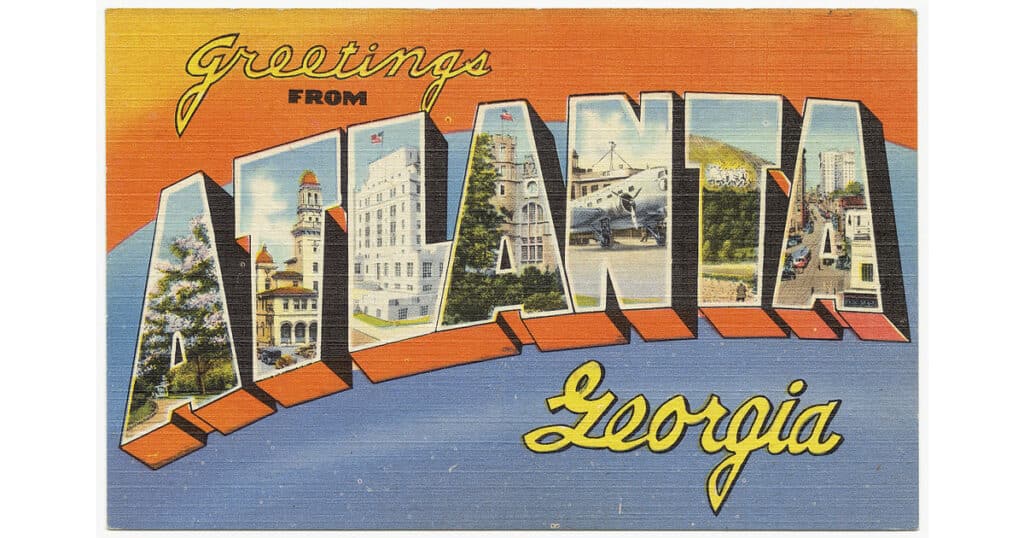
Radicals vs. Atlanta
Throughout the United States, it takes three times as many hours of training to become a nail technician, a barber, or a plumber as it does to become a police officer.
Highly trained law enforcement officers, studies consistently show, are better at handling mental health emergencies and defusing violent confrontations, are less likely to engage in racial bias, and are more equipped to build community bonds necessary for good police work. Poorly trained officers, in contrast, are more likely to use force and rely on their firearms.
Georgia’s police officers are among the least trained nationally, but city leaders in Atlanta are pursuing plans for a new police academy focused on adopting the most modern de-escalation tactics. These include the Integrating Communications, Assessment and Tactics (ICAT) method, which is credited with lowering use-of-force incidents by nearly one-third, reducing injuries to officers and civilians.
And yet, opposition to the planned Atlanta Public Safety Training Center – dubbed “Cop City” – is now among the most popular protest causes of self-styled radicals. Viral social media posts claim that the academy is focused on advancing “white supremacy” and that it is designed for “militarization” tactics. Some claim that Israeli special forces will be brought to the training center to teach the Atlanta Police Department to terrorize minority groups.
The conspiratorial allegations have frustrated local officials, who say that planning meetings, which have been open to the public, made it clear that the academy is doing nothing of the sort. Instead, it will feature modern facilities to train police, firefighters, and other emergency responders in professional best practices.
Protest organizers ignore any of the publicly debated training curriculum and have instead made the center into a target for a smorgasbord of left-wing causes, calling the “Cop City” protests an attempt to “link intensive policing, undemocratic land use processes with the issue of climate change,” and “a global struggle against fascism” to “disrupt the machinery of capitalism.”
Such rhetoric has made meaningful discussion nearly impossible. In June, as the Atlanta city council debated the future of the training center, demonstrators from as far away as Los Angeles mobbed the hearing. Outside the chamber, protesters chanted, “If you build it, we will burn it.” Indeed, demonstrators have thrown fireworks and incendiary devices at law enforcement and set fires at the proposed police academy site in the forest.
Leftists from around the world have come to Atlanta to protest the training center. During violent confrontations with law enforcement earlier this year, only two of the 23 people arrested at the site were from Georgia. The rest were from as far as Canada and France. “Stop Cop City” signs can be spotted in Paris, Brooklyn, and San Francisco, while the movement has spread.
The anti-police training movement is well-funded and receives glowing, uncritical coverage in many prestige media outlets. James “Fergie” Chambers, the anarchist heir to a billionaire media fortune, recently promised $600,000 for the anti-training center campaign. Another liberal foundation called Solidaire, funded by Facebook billionaire Mark Zuckerberg among other wealthy California donors, offers tips to activists on how to derail the training center.
The episode highlights the divergent views around policing that formed in the aftermath of the Black Lives Matter movement. Many saw the moment as an opportunity for substantive reform, such as requirements for body cameras, enhanced training, and legal accountability. Others, especially upper-class activists, have used the movement as fuel for theatrical protest violence with no tangible goals and no serious concern for public safety.
The notion that the training center is a stalking horse for white supremacy strains credulity. Former Atlanta mayor Keisha Bottoms, who announced plans for the center, and her successor, Andre Dickens, are black, as are the majority of city council members backing the project.
If anything, the “Stop Cop City” movement has rippled with identity-based rage. Atlanta City Councilman Michael Julian Bond, son of civil rights icon Julian Bond and a proponent of the center, says that his office has been deluged with death threats and racist messages. “There’s been gratuitous use of the ‘N-word’ against me,” Bond told reporters earlier this summer.
No attempted engagement has pacified the opposition movement, which has only intensified, with activists viewing the center as an existential threat.
“This project is based upon genocide,” declared one activist at the most recent city council meeting. “If this facility is built, queer trans people, black people, indigenous people are going to be killed,” claimed another activist at the hearing.
Despite such talk, ordinary Atlanta residents remain supportive of the project. A poll conducted earlier this year at the direction of Mayor Dickens, found 61% of residents in favor of moving forward with the center. The council hearing in June ended with a 10-4 vote in favor.
“Police, certainly in America, need more training, not just on police investigations but on de-escalation and crowd control,” said Rev. Gerald Durley, an Atlanta activist and longtime community leader. ”When you come down to the actual facts and figures, this training center would be something good.”
This article was adapted from an article published August 3 by RealClearInvestigations and LeeFang.com.
This article was originally published by RealClearPolicy and made available via RealClearWire.



